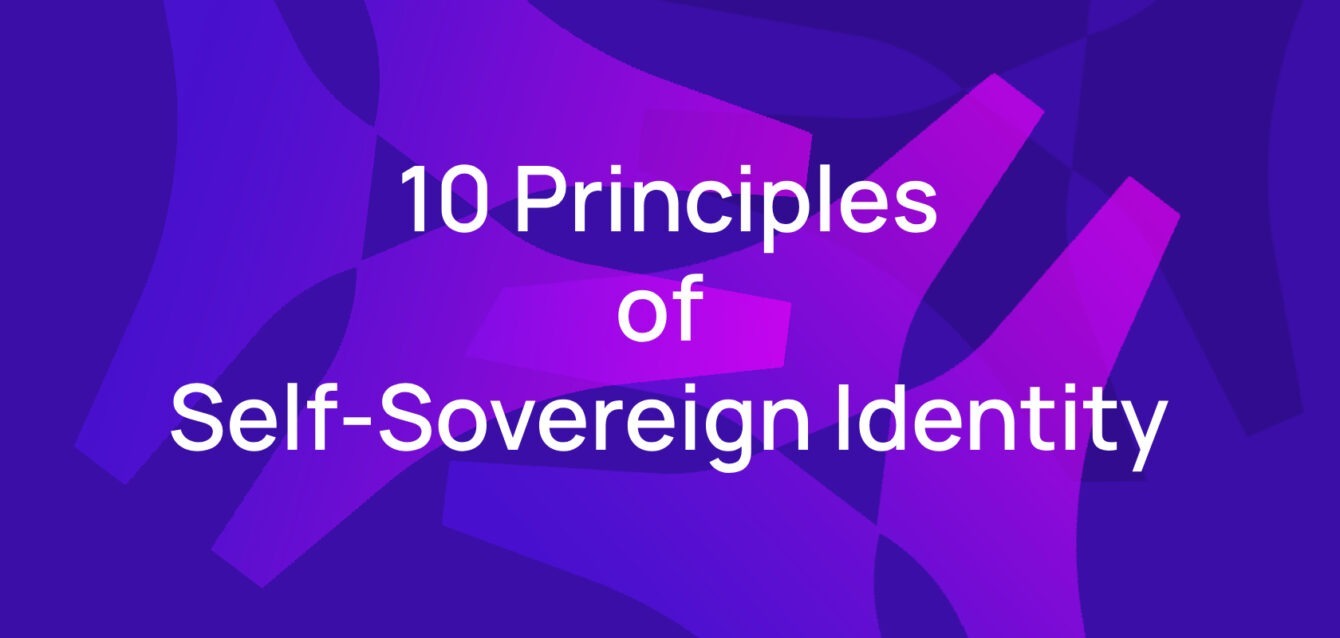In an era where digital identities are becoming as crucial as physical ones, the concept of self-sovereign identity (SSI) has emerged as a beacon of empowerment, privacy, and security. Christopher Allen’s seminal work on the 10 Core Principles of Self-Sovereign Identity outlines a vision of digital identity that is user-centric and controlled by the individual, not corporations or governments.
Principles are listed below:
Existence
At the heart of SSI is the principle that users must have an independent digital existence. This concept is rooted in the idea of self-awareness and autonomy, allowing individuals to maintain their identity without reliance on centralized authorities. In traditional systems, identity is often tied to state-issued credentials, such as driver’s licenses or social security numbers, which can be revoked, effectively erasing one’s digital presence. SSI challenges this by enabling users to exist digitally without third-party dependencies (Allen, 2016).
Control
Users must have control over their identities, a principle underscored by recent data breaches and privacy scandals, such as the Cambridge Analytica incident. Control means that users decide how their identity is used and shared, without disrupting societal structures. For instance, while a government may issue a driver’s license, the individual should manage and control its digital representation (Zyskind et al., 2015).
Access
Ensuring users have access to their data is crucial. This principle advocates for user autonomy in accessing identity-related information without intermediaries. While users may not alter all aspects of their identity, they should be able to view records and changes, maintaining transparency and trust (World Economic Forum, 2018).
Transparency
Transparency in algorithms and infrastructures is vital for monitoring identity management. Systems must operate in an intelligible manner, using clear language to ensure users understand how their data is processed. This transparency fosters fairness and supports a balanced identity system (Decentralized Identity Foundation, 2020).
Persistence
Digital identities should be long-lasting, allowing users to maintain their identity across various platforms and changes in technology. This persistence ensures continuity, even with multiple private keys or identifiers, and applies to individuals and organizations alike (Allen, 2016).
Portability
Identity information must be easily portable, preventing reliance on centralized entities that pose a single point of failure. Portability allows users to transfer and store their identity across multiple locations, enhancing resilience and flexibility (European Union Blockchain Observatory and Forum, 2019).
Interoperability
Identities should function seamlessly across different systems, supporting cross-border and cross-platform interactions. This principle is closely linked to portability, ensuring that digital identities are versatile and widely applicable (Allen, 2016).
Consent
User consent is fundamental in SSI systems, ensuring that personal data is shared only with explicit permission. This principle aligns with privacy regulations like GDPR, which mandate user consent for data processing (European Commission, 2018).
Minimization
Data disclosure should be minimized, protecting user privacy by sharing only necessary information. Techniques like zero-knowledge proofs enable selective disclosure, allowing users to verify attributes without revealing excessive data (Ben-Sasson et al., 2014).
Protection
Users’ rights must be safeguarded through decentralized, censorship-resistant systems. SSI should balance transparency, fairness, and user support, ensuring robust protection against misuse. Regulations like GDPR provide a legal framework for enforcing these protections (European Commission, 2018).
Conclusion
The digital identity landscape is rapidly evolving, with numerous efforts underway to implement these principles through Decentralized Identifiers (DIDs). DIDs offer a framework for creating and managing digital identities in a decentralized manner, aligning closely with the principles of SSI.
Innovative solutions are emerging, such as the SovereignT Protocol and Identity Wallet by SovereignT Labs, which exemplify efforts to provide secure, user-centric identity management tools. These products aim to empower individuals with control over their digital identities, ensuring privacy, security, and interoperability in the digital age.
By embracing these principles and leveraging technologies like DIDs, we are moving towards a future where digital identities are truly self-sovereign, offering individuals unprecedented control and security in the digital realm.
References
- Allen, C. (2016). The Path to Self-Sovereign Identity. Medium Article.
- Zyskind, G., Nathan, O., & Pentland, A. (2015). Decentralizing Privacy: Using Blockchain to Protect Personal Data. IEEE Security & Privacy Workshops.
- World Economic Forum. (2018). Identity in a Digital World: A New Chapter in the Social Contract. Report.
- Decentralized Identity Foundation. (2020). Website.
- European Union Blockchain Observatory and Forum. (2019). Report.
- European Commission. (2018). General Data Protection Regulation (GDPR). Official Journal of the European Union.
- Ben-Sasson, E., Chiesa, A., Garman, C., Green, M., Miers, I., Tromer, E., & Virza, M. (2014). Zerocash: Decentralized Anonymous Payments from Bitcoin. IEEE Symposium on Security and Privacy.



